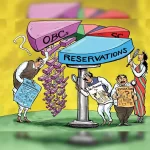In the rapidly evolving landscape of information technology, government organizations worldwide are embracing digital transformation to enhance efficiency, transparency, and service delivery. As a result, the demand for skilled IT professionals in the government sector has soared. In this article, we will delve into the top 20 IT jobs in the government sector, shedding light on the roles that play a pivotal role in shaping the digital future of governance.
20 IT Jobs in the Government Sector
Chief Information Officer (CIO):
The CIO spearheads the IT strategy, ensuring alignment with the government’s overall goals. They are responsible for driving innovation, managing IT budgets, and overseeing the implementation of technology initiatives.

IT Project Manager:
Navigating the intricate web of technology, IT Project Managers orchestrate the symphony of planning, execution, and closure, ensuring temporal precision, financial adherence, and alignment with specified requisites in every project they helm.
Cybersecurity Analyst:
In the ever-evolving landscape of digital security challenges, governmental bodies are placing heightened emphasis on cybersecurity measures, with Cybersecurity Analysts at the forefront, tasked with shielding confidential data, executing risk evaluations, and crafting proactive strategies to counteract cyber threats.
Network Administrator:
Custodians of digital connectivity, Network Administrators wield the power to harmonize organizational computer networks, acting as linchpins in the governmental realm to foster smooth communication and data synergy across diverse
Database Administrator:
Database Administrators manage and organize vast amounts of data. In government, they ensure the security and integrity of databases containing critical information.
Systems Analyst:
Systems Analysts analyze and design information systems to meet specific project requirements. They bridge the gap between IT and other departments, ensuring technology solutions align with organizational needs.
GIS Specialist:
Geographic Information System (GIS) Specialists in the government sector utilize spatial data to make informed decisions. They contribute to urban planning, environmental management, and various other government initiatives.
Web Developer:
Web Developers create and maintain websites and web applications for government agencies. They ensure that online platforms are user-friendly, accessible, and compliant with government standards.
Data Scientist:
Data Scientists in government analyze large datasets to extract valuable insights. They contribute to evidence-based policymaking, helping agencies make informed decisions.
IT Auditor:
IT Auditors evaluate an organization’s IT systems to ensure compliance with regulations and assess the effectiveness of internal controls. In the government sector, this role is crucial for maintaining transparency and accountability.

Health IT Specialist:
With the digitization of healthcare records, Health IT Specialists play a crucial role in managing and optimizing health information systems within government health agencies.
AI and Machine Learning Engineer:
Governments are increasingly incorporating AI and machine learning into various processes. Engineers in this field contribute to developing intelligent systems that enhance decision-making and efficiency.
Cloud Solutions Architect:
As governments transition to cloud-based solutions, Cloud Solutions Architects design and implement scalable and secure cloud infrastructures for storing and managing data.
Business Intelligence Analyst:
Business Intelligence Analysts leverage data to provide actionable insights, aiding government agencies in making informed decisions and optimizing their operations.
IT Support Specialist:
IT Support Specialists provide technical assistance to government employees, ensuring that IT systems are functioning smoothly. They play a crucial role in maintaining day-to-day operations.
Mobile App Developer:
Mobile App Developers create applications that enable government agencies to connect with citizens and provide services through mobile platforms.
IT Trainer:
IT Trainers are responsible for equipping government employees with the necessary skills to adapt to new technologies. They facilitate training programs to enhance the overall IT literacy within the organization.
Compliance Analyst:
Compliance Analysts ensure that government IT systems adhere to industry regulations and standards. They play a vital role in maintaining legal and ethical standards in technology usage.
Digital Content Manager:
Digital Content Curators are responsible for supervising the development and administration of digital content on government websites and online platforms, guaranteeing the clarity and accessibility of information presentation.
IT Policy Analyst:
IT Policy Analysts work on developing and implementing IT policies within government organizations. They ensure that technology use aligns with regulatory requirements and organizational objectives.
Conclusion
The reshaping of the public sector’s landscape is being driven by the seamless integration of technology into government operations, with IT professionals leading the way in this transformative journey. This article spotlights the top 20 IT jobs within the government sector, showcasing the diverse roles that play a pivotal role in streamlining operations and digitizing government services. As technological advancements persist, the anticipated growth in demand for adept IT professionals in the public sector underscores the crucial nature of these roles in ensuring effective governance for the future.
Read More:- Unveiling the Ultimate Guide: The Best Books for Preparing for the KVPY Exam
Read More:- UNVEILING THE ULTIMATE MEMORIZATION TECHNIQUES FOR VERBAL AND











